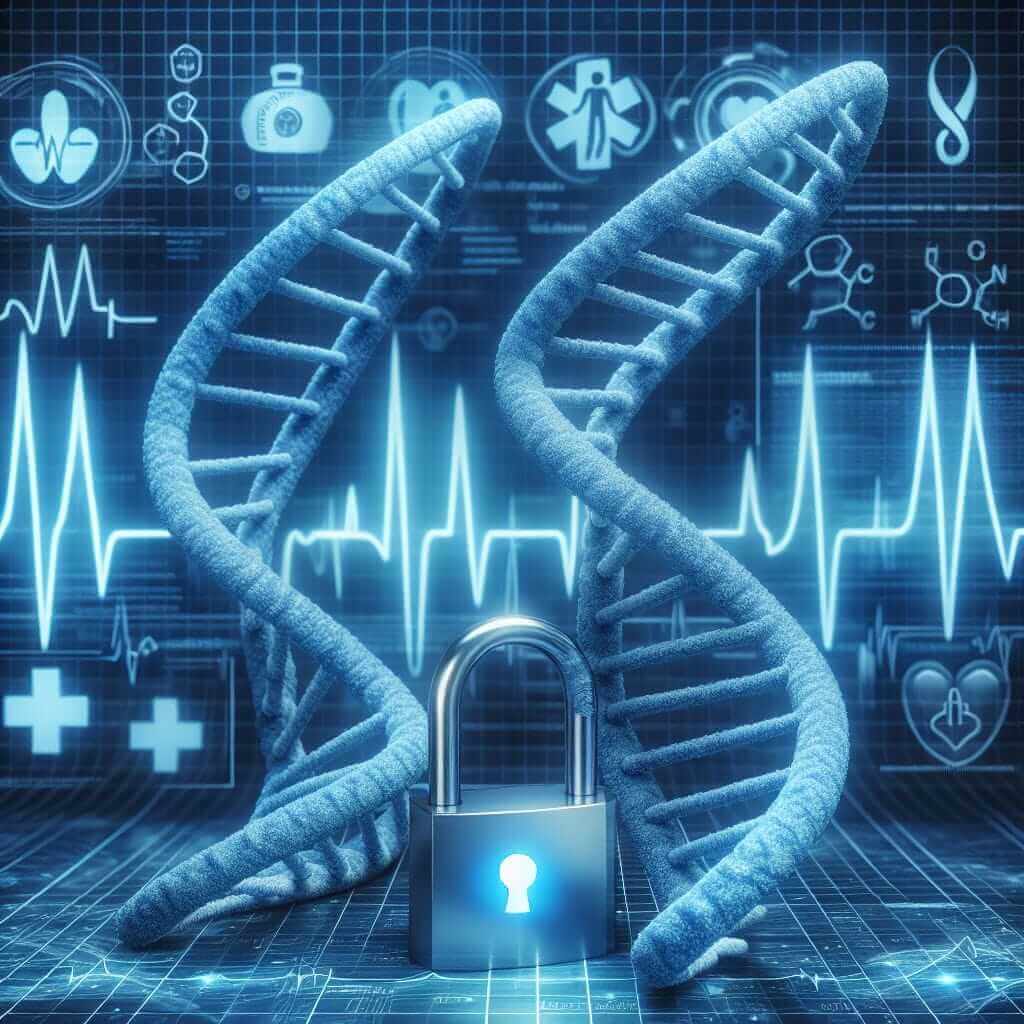The IELTS Reading test is designed to assess a variety of reading skills, including reading for gist, reading for main ideas, reading for detail, skimming, understanding logical arguments, and recognizing writers’ opinions, attitudes, and purpose. The topic “What are the implications of genetic privacy on healthcare?” appears more frequently in modern discussions due to advancements in biotechnology and increasing concerns about data privacy. This topic has appeared in various forms in past IELTS exams. As genetic technology becomes more integrated into healthcare, the likelihood of encountering such a topic in the IELTS Reading section grows.
Reading Passage and Questions
Reading Passage
What are the Implications of Genetic Privacy on Healthcare?
The rise of genetic testing and genome sequencing has revolutionized healthcare, offering unprecedented insights into personal health risks, disease predisposition, and potential treatments. However, these advancements also bring significant ethical and privacy concerns.
Genetic data is incredibly personal and uniquely identifying. Unlike other medical information, genetic information can reveal details not only about the individual but also about their relatives. This interconnectivity raises complex privacy issues. One major concern is discrimination based on genetic information. For instance, employers or insurance companies might misuse genetic data to make hiring or coverage decisions. Although laws such as the Genetic Information Nondiscrimination Act (GINA) exist to prevent such practices, loopholes and enforcement challenges remain.

Another key issue is the security of genetic data. With cyberattacks becoming increasingly sophisticated, the risk of genetic data breaches is a pressing concern. Unauthorized access to genetic information could lead to identity theft, financial exploitation, or even blackmail.
Moreover, there are implications for medical research. While genetic data can significantly advance scientific knowledge and lead to breakthroughs in treating genetic disorders, researchers must navigate ethical considerations about consent and the use of genetic material. Ensuring that participants understand how their data will be used and securing their consent is crucial.
Healthcare providers also face dilemmas when dealing with genetic information. For example, if a patient’s genetic data indicates a predisposition to a serious disease, the provider must decide how and when to disclose this information. Balancing the need to inform patients with the potential for causing unnecessary anxiety is a delicate task.
The implications of genetic privacy on healthcare encompass legal, ethical, and practical dimensions. As genetic technology continues to evolve, so must the frameworks that govern its use, ensuring that the benefits of genetic advancements are realized without compromising individual privacy.
Practice Questions
Question Type: True/False/Not Given
- Genetic data can reveal information about an individual’s family members.
- Genetic Information Nondiscrimination Act (GINA) has completely eliminated discrimination based on genetic information.
- Genetic data breaches are rare due to advanced cybersecurity measures.
- Participants’ consent in genetic research is essential to navigate ethical considerations.
- Healthcare providers often face difficulties in disclosing genetic information to patients.
Question Type: Summary Completion
Choose NO MORE THAN TWO WORDS from the passage for each answer.
The rise of genetic testing and genome sequencing has brought about major advancements in healthcare but also raises significant (6) concerns. Genetic data can reveal information about individuals and their (7) . Discrimination could occur if genetic data is misused by (8) or insurers. Cyberattacks pose a threat to the (9) of genetic data. In medical research, it is crucial to obtain the (10) ___ of participants. Healthcare providers must carefully consider the implications of disclosing genetic information to patients.
Question Type: Matching Information
Match each statement with the correct part of the passage.
- The impact of genetic data on family members.
- Laws designed to prevent genetic discrimination.
- Challenges in securing genetic data.
- Ethical concerns in medical research.
- Disclosure dilemmas for healthcare providers.
A. Paragraph 4
B. Paragraph 1
C. Paragraph 3
D. Paragraph 5
E. Paragraph 2
Answer Key and Explanations
-
True – The passage states that genetic information can reveal details about the individual’s relatives.
-
False – The passage mentions that GINA exists but highlights that loopholes and enforcement challenges remain.
-
False – It is stated that genetic data breaches are a pressing concern, implying they are not rare.
-
True – The passage discusses the importance of participants understanding how their data will be used and securing their consent.
-
True – The passage highlights the dilemma healthcare providers face when disclosing genetic information.
-
ethical
-
relatives
-
employers
-
security
-
consent
-
B
-
E
-
D
-
C
-
A
Common Mistakes and Vocabulary
Common Mistakes:
- Misunderstanding the nuanced differences between “True” and “False” statements.
- Difficulty in identifying the relevant information for summary completion.
Vocabulary:
- Revolutionized (v): /ˈrev.ə.luː.ʃən.aɪzd/ – transformed radically.
- Predisposition (n): /ˌpriː.dɪs.pəˈzɪʃ.ən/ – susceptibility or tendency.
- Ethical (adj): /ˈeθ.ɪ.kəl/ – relating to moral principles.
- Breach (n): /briːtʃ/ – an act of breaking or failing to observe a law or agreement.
- Blackmail (n): /ˈblæk.meɪl/ – demanding money or another benefit from someone in return for not revealing compromising or damaging information.
Grammar:
- Relative Clauses: “Unlike other medical information, genetic information can reveal details not only about the individual but also about their relatives.”
- Passive Voice: “The rise of genetic testing has revolutionized healthcare.”
Advice for High IELTS Reading Scores
- Practice Regularly: Familiarize yourself with different question types and practice regularly to improve your speed and accuracy.
- Skim and Scan: Develop the skills to quickly find key information without getting bogged down in details.
- Understand Vocabulary in Context: Enhance your ability to decipher the meaning of new words based on the context they are used in.
- Time Management: Allocate your time wisely, ensuring you have enough time to answer all questions.
- Review and Reflect: After practicing, review your answers and understand the reasons behind any mistakes to avoid them in the future.